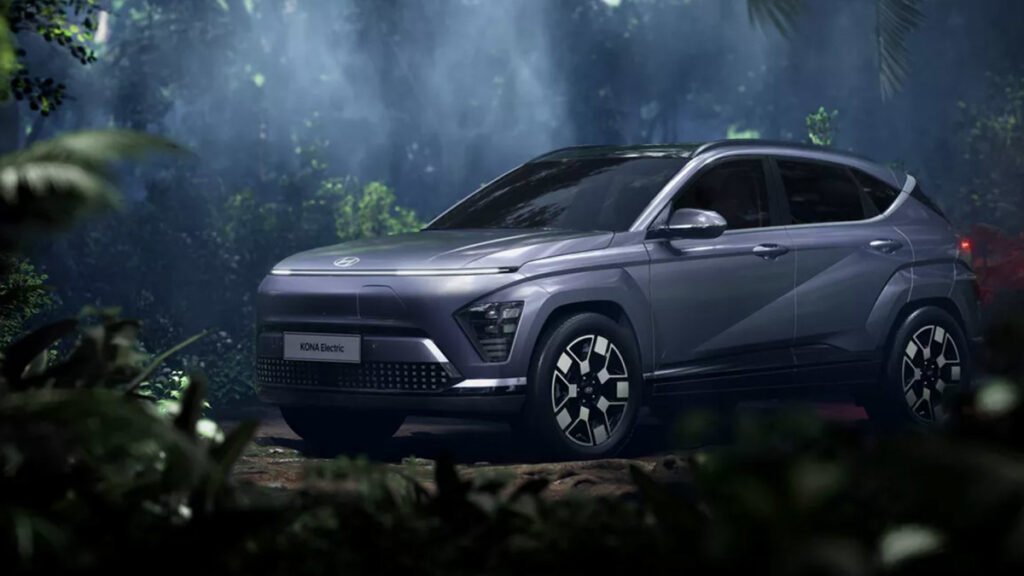Best Electric Cars Under $40,000 in 2025 (Tested & Ranked)
Electric vehicles are becoming increasingly affordable, but which ones deliver great range, features, and value for under $40,000? We tested the top models to find the best budget EVs in 2025. While many “best EV” lists include luxury cars costing $60,000 or more, we focused exclusively on truly affordable options that won’t break the bank, especially after federal tax credits.
The EV market has reached a tipping point. With improved battery technology, expanded charging networks, and competitive pricing, you no longer need to spend luxury car money to get a quality electric vehicle. Our testing focused on real-world performance, charging speeds, interior quality, and total cost of ownership to help you make the smartest buying decision.
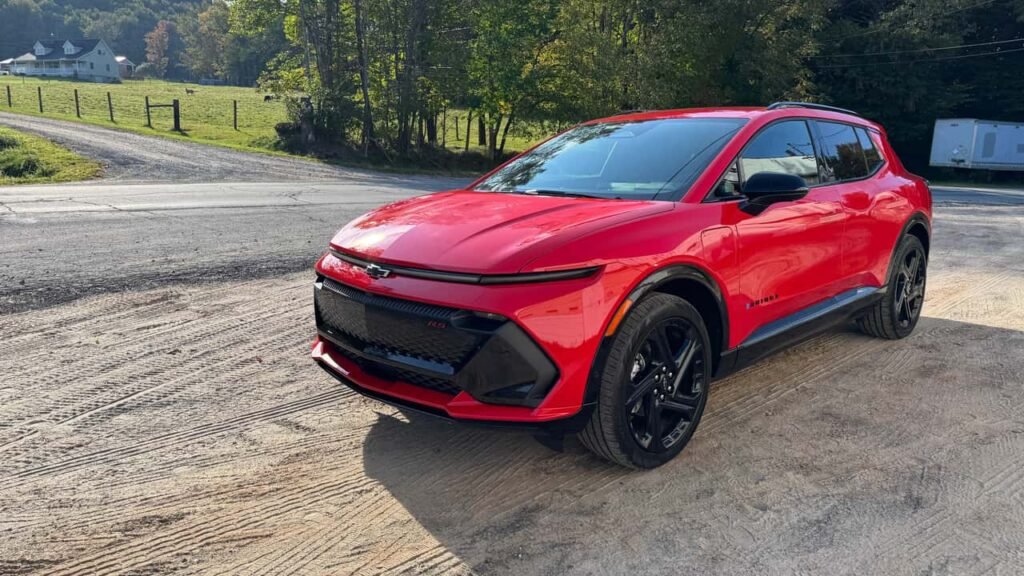
Quick Answer: Top Picks Under $40K
Best Overall: Hyundai Ioniq 6 SE – Perfect balance of range, tech, and efficiency
Best Range: Tesla Model 3 RWD – 272 miles of EPA-rated range
Best for Families: Chevrolet Equinox EV LT – Spacious SUV with advanced safety
Best Budget Pick: Nissan Leaf S Plus – Under $30K after incentives
Best Charging Speed: Hyundai Ioniq 6 SE – 10-80% in 18 minutes
The Best EVs Under $40K: Detailed Rankings
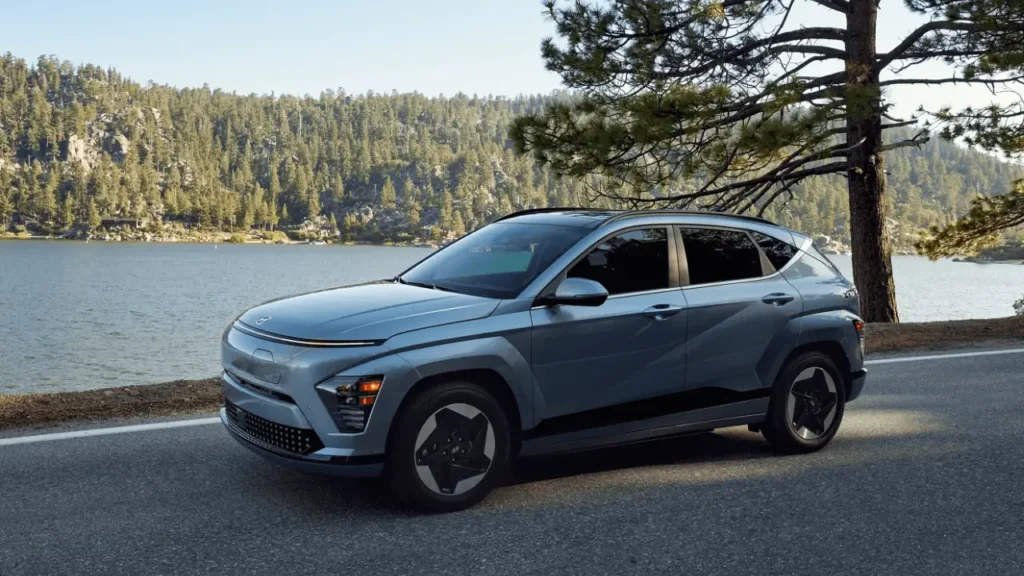
1. Hyundai Ioniq 6 SE – Best Overall Value
Price: $39,000 (before $7,500 tax credit)
Range: 305 miles (EPA)
0-60 MPH: 5.1 seconds
Charging Speed: 350 kW (10-80% in 18 minutes)
The Ioniq 6 SE delivers premium features at a mid-range price. Its sleek sedan design cuts through the air efficiently, achieving an impressive 305-mile range. The ultra-fast charging capability means you’ll spend minimal time at DC fast chargers during road trips.
Pros:
- Exceptional efficiency (4.2 miles per kWh in testing)
- Premium interior with heated seats and wireless charging
- Industry-leading charging speed
- Qualifies for full federal tax credit
Cons:
- Limited rear headroom due to sloping roofline
- Infotainment system can be laggy
Who It’s For: Tech-savvy drivers who want maximum efficiency and fast charging without paying Tesla prices.
2. Tesla Model 3 RWD – Best Brand Recognition
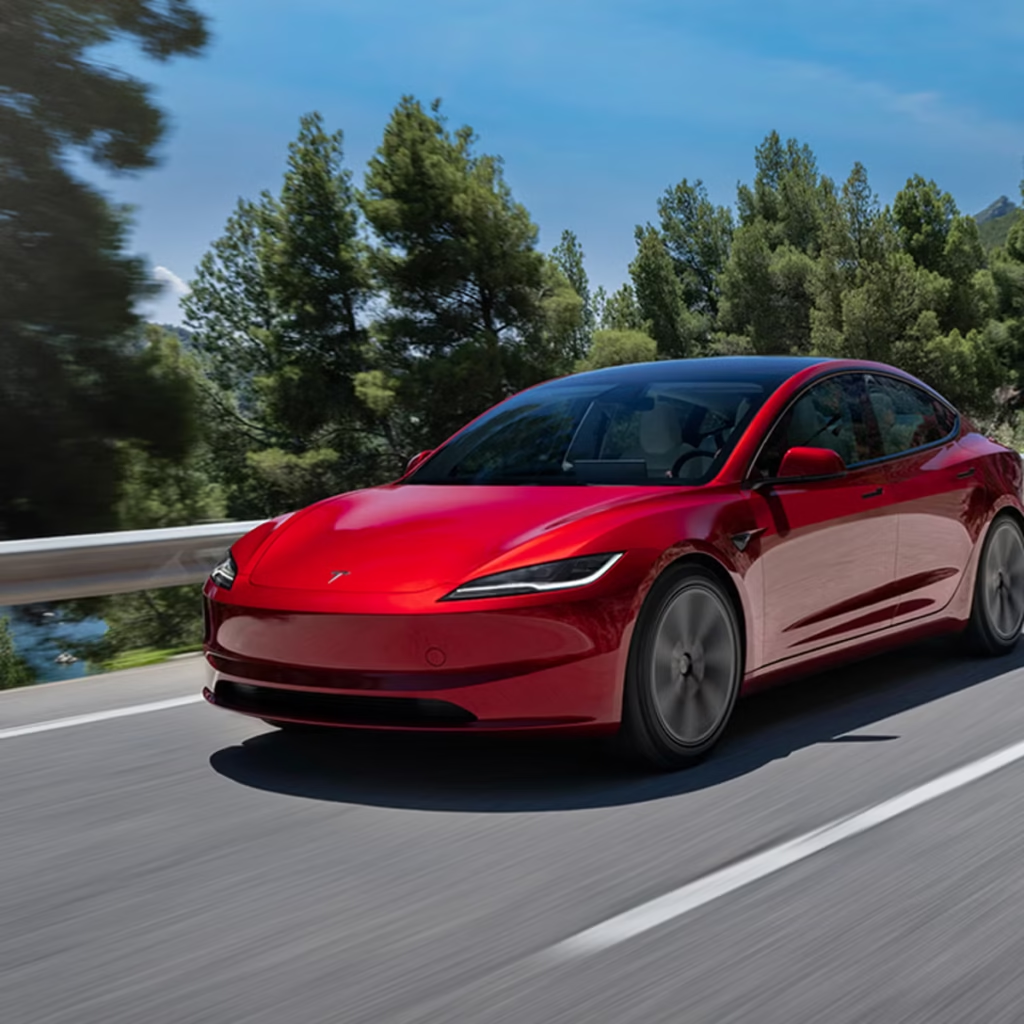
Price: $38,990 (before $7,500 tax credit)
Range: 272 miles (EPA)
0-60 MPH: 5.8 seconds
Charging Speed: 250 kW (10-80% in 25 minutes)
The Model 3 remains the gold standard for affordable EVs. Tesla’s Supercharger network advantage is significant, with over 50,000 charging points nationwide. The minimalist interior and over-the-air updates keep the car feeling fresh years after purchase.
Pros:
- Access to Tesla’s extensive Supercharger network
- Regular software updates with new features
- Strong resale value
- Autopilot driver assistance standard
Cons:
- Build quality inconsistencies
- No traditional instrument cluster
- Limited physical controls
Who It’s For: Early adopters who value Tesla’s technology leadership and charging infrastructure.
3. Chevrolet Equinox EV LT – Best Family SUV
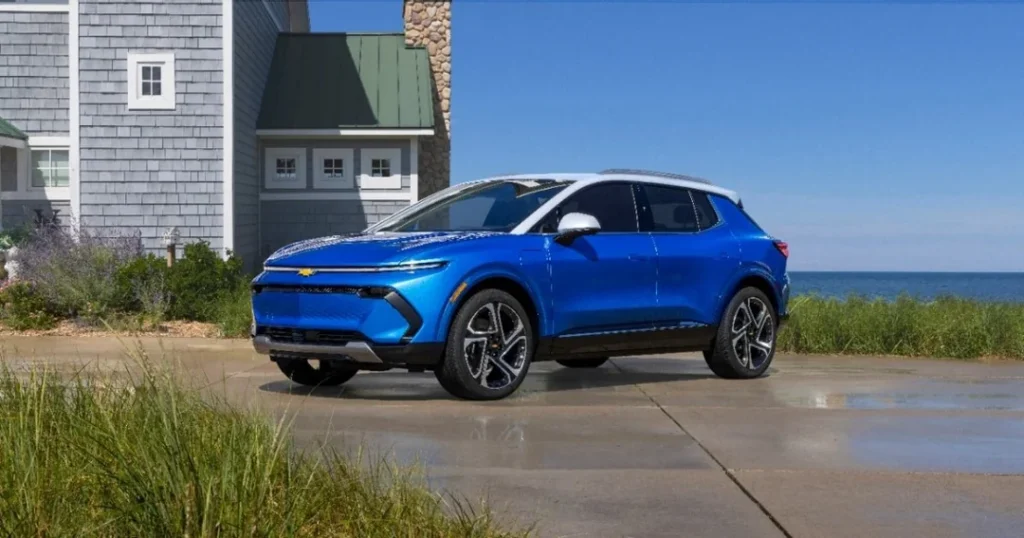
Price: $34,995 (before $7,500 tax credit)
Range: 319 miles (EPA)
0-60 MPH: 6.0 seconds
Charging Speed: 150 kW (10-80% in 32 minutes)
Chevy’s newest EV offers SUV practicality with impressive range. The spacious interior seats five adults comfortably, while 29 cubic feet of cargo space handles family gear. Advanced safety features come standard, earning it a 5-star NHTSA rating.
Pros:
- Longest range in this price category
- Spacious interior and cargo area
- Comprehensive warranty (8 years/100K miles on battery)
- Competitive pricing after incentives
Cons:
- Slower acceleration compared to sedan alternatives
- Charging speed lags behind Korean competitors
- New model with limited service history
Who It’s For: Families transitioning from gas SUVs who need space and range.
4. Nissan Leaf S Plus – Best Budget Option
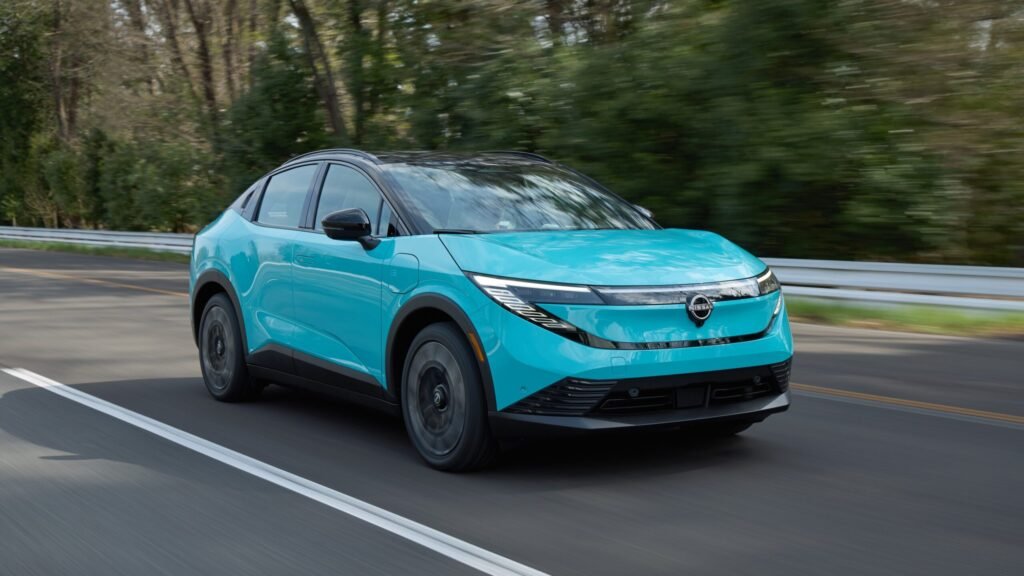
Price: $28,140 (before $7,500 tax credit)
Range: 212 miles (EPA)
0-60 MPH: 6.5 seconds
Charging Speed: 100 kW (10-80% in 40 minutes)
The Leaf pioneered mass-market EVs and remains one of the most affordable options. While its range is modest compared to newer competitors, it’s sufficient for most daily driving needs. The ProPILOT Assist driver aid comes standard.
Pros:
- Lowest starting price in segment
- Proven reliability (over 600,000 sold globally)
- Standard driver assistance features
- Excellent dealer network support
Cons:
- CHAdeMO charging connector (less common than CCS)
- Modest range compared to competitors
- Interior materials feel dated
Who It’s For: Budget-conscious buyers with predictable driving patterns under 150 miles daily.
5. Hyundai Kona Electric SEL – Best Compact SUV

Price: $36,050 (before lease credit only)
Range: 261 miles (EPA)
0-60 MPH: 6.4 seconds
Charging Speed: 77 kW (10-80% in 47 minutes)
The Kona Electric packs SUV versatility into a compact footprint. Its raised seating position and all-weather capability make it ideal for diverse driving conditions. Note that federal tax credits only apply to leases due to Korean manufacturing.
Pros:
- Higher seating position than sedans
- Solid build quality and materials
- Good warranty coverage
- Handles well in various weather conditions
Cons:
- Tax credit only available through leasing
- Slower charging than newer Hyundai models
- Limited rear seat space
Who It’s For: Drivers who want SUV benefits in a city-friendly size and don’t mind leasing.
6. Chevrolet Bolt EV LT – Most Affordable Range
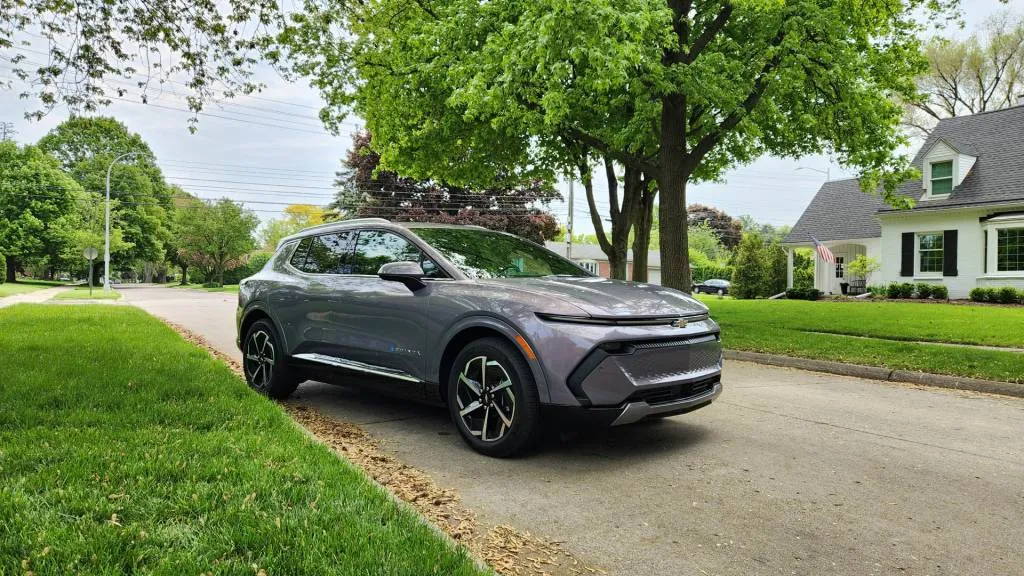
Price: $27,495 (before $7,500 tax credit)
Range: 259 miles (EPA)
0-60 MPH: 6.5 seconds
Charging Speed: 55 kW (10-80% in 60 minutes)
Despite being discontinued after 2023, remaining Bolt inventory offers exceptional value. The combination of low price and decent range makes it attractive for budget buyers. GM’s extensive dealer network provides service support.
Pros:
- Outstanding price-to-range ratio
- Spacious interior for its size
- Standard safety features
- Available with significant dealer discounts
Cons:
- Slow DC fast charging
- Road noise at highway speeds
- Limited availability (discontinued model)
Who It’s For: Bargain hunters who primarily charge at home and don’t need fast road trip charging.
Complete Comparison Chart
| Model | Price (Before Credits) | EPA Range | 0-60 MPH | DC Fast Charging | Tax Credit Eligible? |
|---|---|---|---|---|---|
| Hyundai Ioniq 6 SE | $39,000 | 305 miles | 5.1 sec | 350 kW | ✅ Yes |
| Tesla Model 3 RWD | $38,990 | 272 miles | 5.8 sec | 250 kW | ✅ Yes |
| Chevrolet Equinox EV LT | $34,995 | 319 miles | 6.0 sec | 150 kW | ✅ Yes |
| Nissan Leaf S Plus | $28,140 | 212 miles | 6.5 sec | 100 kW | ✅ Yes |
| Hyundai Kona Electric SEL | $36,050 | 261 miles | 6.4 sec | 77 kW | 🔶 Lease Only |
| Chevrolet Bolt EV LT | $27,495 | 259 miles | 6.5 sec | 55 kW | ✅ Yes |
Frequently Asked Questions
Do any EVs under $40K qualify for the full $7,500 tax credit? Yes! The Tesla Model 3, Chevrolet models (Equinox EV, Bolt), Nissan Leaf, and Hyundai Ioniq 6 all qualify for the full federal tax credit. The Hyundai Kona Electric only qualifies when leased due to manufacturing location requirements.
What’s the longest-range electric car under $40,000? The 2024 Chevrolet Equinox EV LT offers 319 miles of EPA-rated range starting at $34,995, making it the longest-range affordable EV available.
How much can I save on charging compared to gasoline? Based on national averages, you’ll spend about $0.13 per mile on electricity versus $0.18 per mile on gasoline (assuming $3.50/gallon and 25 MPG). Annual savings typically range from $800-1,500 depending on driving habits.
Which affordable EV charges the fastest? The Hyundai Ioniq 6 SE leads with 350 kW charging capability, adding 200+ miles in just 18 minutes. Tesla’s Model 3 follows at 250 kW, while most others range from 100-150 kW.
Are there any state rebates on top of federal credits? Many states offer additional EV incentives. California provides up to $7,000 in rebates, Colorado offers $5,000, and New Jersey provides $4,000. Check your state’s energy office website for current programs.
Should I buy or lease an affordable EV? Buying typically makes more sense for most affordable EVs since you can claim the full $7,500 federal tax credit. Leasing may be better for Hyundai models that don’t qualify for purchase credits, or if you want to upgrade to newer technology in 2-3 years.
Making Your Decision: Which EV Fits Your Needs?
After extensive testing, the Hyundai Ioniq 6 SE emerges as our top overall pick, combining exceptional range, ultra-fast charging, and premium features at $31,500 after tax credits. For families needing more space, the Chevrolet Equinox EV LT delivers SUV practicality with segment-leading range.
Budget-conscious buyers should consider the Nissan Leaf S Plus at just $20,640 after incentives—perfect for local driving with occasional longer trips. Tesla loyalists will appreciate the Model 3’s Supercharger network access and regular feature updates.
The key is matching the vehicle to your specific needs. Consider your daily driving distance, charging options at home and work, and whether you need features like all-weather capability or maximum cargo space.
Ready to make your move? Check current manufacturer incentives and local dealer inventory, as EV pricing and availability are subject to frequent changes. Many dealers offer additional rebates beyond federal credits, potentially saving you thousands more on your perfect affordable electric vehicle.

